Cecil, Edge, and friends break back into the Tower of Bab-il that exists above ground. Edge is looking for his abducted parents, and the heroes are trying to find a way back into the Underworld.
Wall-Piercing Technique
The way into the tower is blocked by a wall. Cecil wonders how they can get inside, and Edge replies by saying it’s no problem at all. He then says:
 |  |
| Final Fantasy IV (Super Famicom) | Final Fantasy II (Super NES) |
| Japanese Version (basic translation) | English Translation |
| Heheh! This is my Wall-Piercing Technique! | Watch! |
It’s not much, but this is a good example of how text was slimmed down in the translation, and how even tiny little details were lost in doing so.
On a side note, I wonder if this technique would’ve come in useful elsewhere in the story, or in a sequel or spinoff. It feels like something that the writers would’ve forgotten about though.
Treasure Changes
There are a few treasure chests in this upper area of the tower. Some of these chests had their contents or names changed for the Easy Type and English releases:
 |  |  |
| Final Fantasy IV (Super Famicom) | Final Fantasy IV Easy Type (Super Famicom) | Final Fantasy II (Super NES) |
| Location: | Final Fantasy IV | Final Fantasy IV Easy Type | Final Fantasy II |
| 1F | Unicorn Horn | X-Potion | Cure 3 |
| 1F | Silver Hourglass | X-Potion | Cure 3 |
| B3F | Lilith Kiss | 2000 Gil | 2000 GP |
| B4F | Asura | Shinobi Katana | Middle |
Edge’s Parents
Edge finally finds his parents – who are also the king and queen of Eblana – inside the Tower of Bab-il. Unfortunately, Dr. Lugae performed horrible experiments on them and turned them into grotesque, mindless monsters.
At first, the king and queen sound happy to see Edge again, but then they offer this surprising invitation:
 |  |
| Final Fantasy IV (Super Famicom) | Final Fantasy II (Super NES) |
| Japanese Version (basic translation) | English Translation |
| Queen of Eblana: Edge… Come join us… | Queen: Edge… Come… |
| King of Eblana: Come with us… | King: Come with us. |
| Edge: To where? | Edge: To where? |
| Queen of Eblana: To Hell! | Queen: To the Dark World! |
This replacement of the word “Hell” with something silly and vague is something seen throughout entertainment localization in the 1990s. It also reminds me of the early Dragon Ball Z dubs that changed things like “death” and “hell” to “the next dimension”.
In fact, once the following boss battle begins, “Hell” gets changed again, but to a different word this time:
 |  |
| Final Fantasy IV (Super Famicom) | Final Fantasy II (Super NES) |
| Japanese Version (basic translation) | English Translation |
| King: Huh. If the rest of you want to die so badly too, then I’ll turn you ALL into the sands of Hell! | King: I will bring you all down to the Hades! |
For reference, Nintendo of America’s official list of unacceptable content in the 1990s included this part:
[…]ethnic, racial, religious, nationalistic, or sexual stereotypes of language; this includes symbols that are related to any racial, religious, nationalistic, or ethnic group, such as crosses, pentagrams, God, Gods (Roman mythological gods are acceptable), Satan, hell, Buddha;
As we can see, references to “Hell” weren’t allowed, but old mythological references were permitted, which is why “Hades” was acceptable in the above line.
Rubicante Battle #2
After Edge’s parents die, Rubicante appears and explains that Dr. Lugae was responsible for what happened to them. Rubicante also states that Edge is too emotionally swayed to ever obtain true strength. Edge erupts with anger, and he acquires two new, powerful ninja attacks.
After witnessing this, Rubicante says:
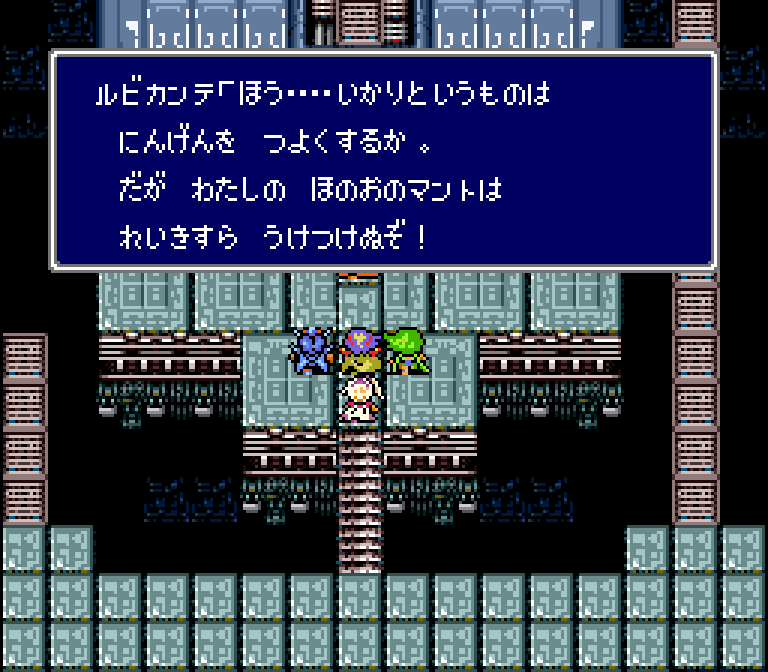 | 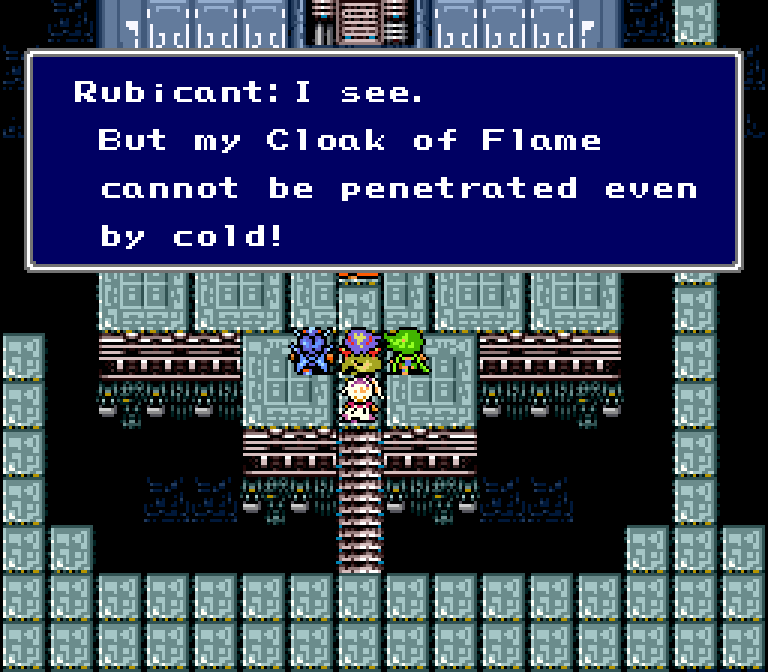 |
| Final Fantasy IV (Super Famicom) | Final Fantasy II (Super NES) |
| Japanese Version (basic translation) | English Translation |
| Rubicante: Oh-ho… So the thing known as “anger” can give humans strength. | Rubicant: I see. |
| However, not even coldness can penetrate my Flame Cape! | But my Cloak of Flame cannot be penetrated even by cold! |
In Japanese, we see that Rubicante discovers something new about humans and their emotions. This fits perfectly with the scene after he’s defeated, in which he learns something else about humans: that even weak humans can become strong by working together. This, together with Rubicante’s sense of honor, adds up to a genuinely interesting villain who learns and grows over time.
In the English version, Rubicante doesn’t remark on his discovery about human emotions – I assume this was again due to script length limitations. Of course, this first sentence isn’t absolutely vital, but I feel it would’ve been better to trim the second line to make room for a longer first line.
Chamberlain / Gramps
After Rubicante leaves, an old man suddenly rushes in to make sure Prince Edge is safe:
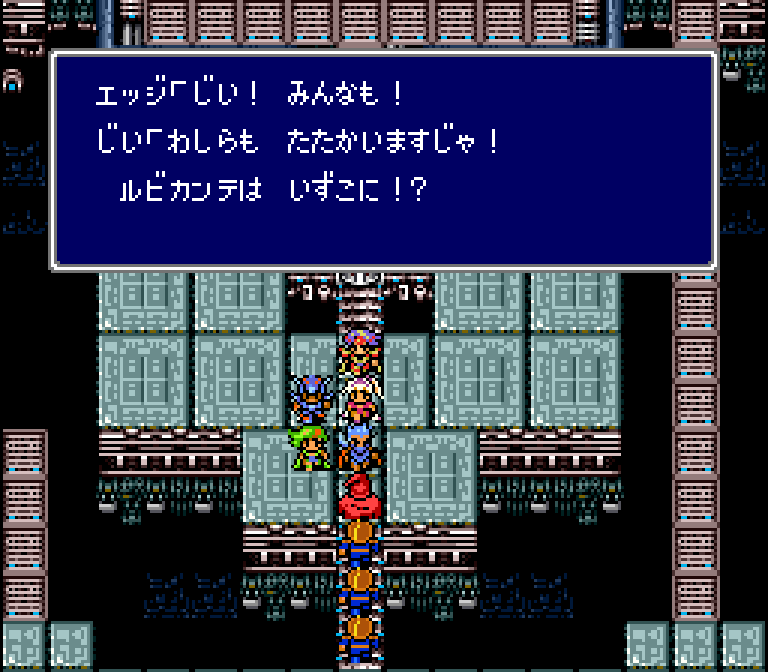 |  |
| Final Fantasy IV (Super Famicom) | Final Fantasy II (Super NES) |
In the English script, this character is referred to as “Chamberlain”. For reference, the word chamberlain is defined as:
An officer who manages the household of a monarch or noble.
This fits the situation perfectly, of course.
In the original Japanese script, however, the old man is simply referred to as じい (jī), which is an extremely informal and personal way of referring to your grandfather or someone who has a grandfather-like relation to you. This suggests that the old man and Edge are on very close terms and that the old man has looked after Edge most of his life.
Incidentally, this character is called “Gramps” in every English translation after the Super NES release.
Moon Details
The heroes explain to Edge who Golbez is and that Golbez wants to go to the moon. Edge responds:
 | 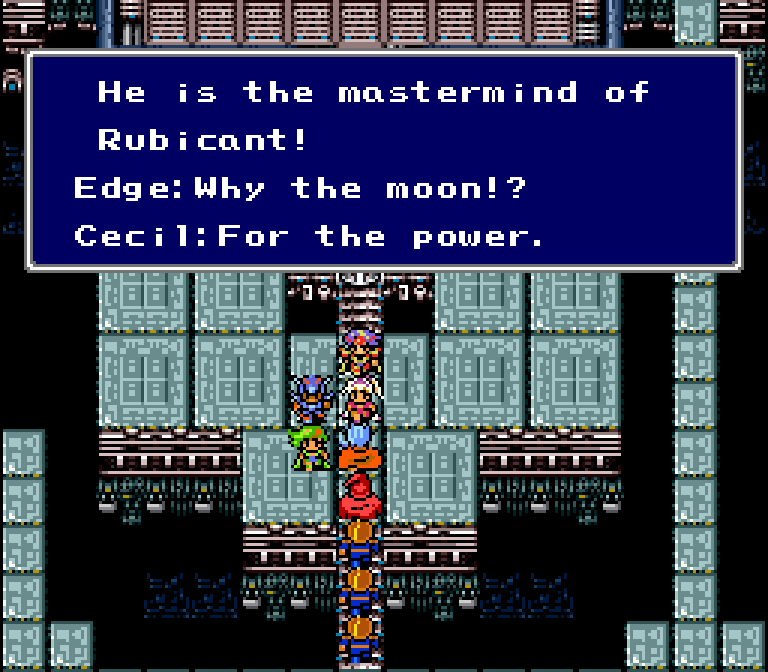 |
| Final Fantasy IV (Super Famicom) | Final Fantasy II (Super NES) |
| Japanese Version (basic translation) | English Translation |
| Edge: The moon? What for? | Edge: Why the moon!? |
| Cecil: it’s said there’s something on the moon powerful enough to destroy the world. | Cecil: For the power. |
Cecil’s simplified line in the English version always makes me laugh a little – it makes it sound so matter-of-fact: “What do you mean? Everyone knows the moon is made of power, duh!”.
Edge’s Motivation
The chamberlain wants Edge to stay and rebuild their kingdom, but Edge wants to join the heroes on their quest:
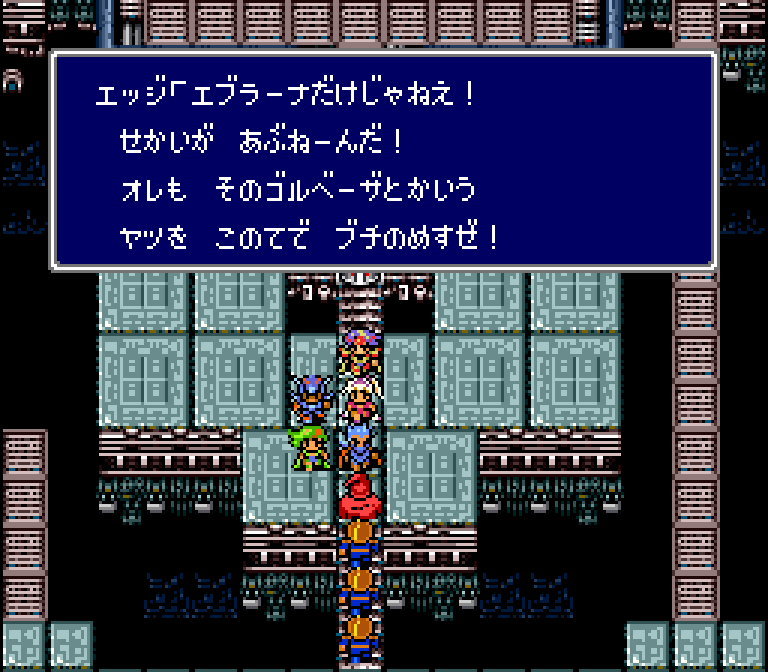 | 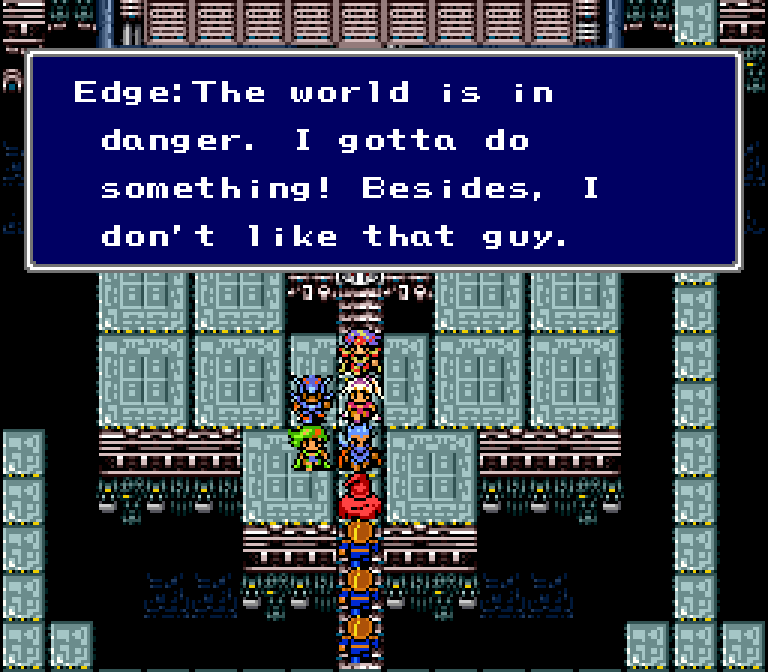 |
| Final Fantasy IV (Super Famicom) | Final Fantasy II (Super NES) |
| Japanese Version (basic translation) | English Translation |
| Edge: This is about more than just Eblana! The whole world is in danger! | Edge: The world is in danger. I gotta do something! |
| I’m gonna thrash this Golbez guy with my own two hands too! | Besides, I don’t like that guy. |
Edge’s line about Golbez can also be translated as “kicking his ass”, “beating him senseless”, and other things of that sort. For some reason, this changed into “I don’t like that guy” in the English release.
The text immediately afterward is a bit different too:
| Japanese Version (basic translation) | English Translation |
| Gramps: In that case, please do be careful…! | Chamberlain: Oh…… but… Your Highness… |
| Edge: Yeah, yeah, I know! All right, leave everything up to me now! | Edge: Don’t worry! Now go back to Eblan! |
I checked, and all of the later translations of the game stay closer to the original text. I wonder why these things changed in the first place.
Okey Dokey
 |  |
| Final Fantasy IV (Super Famicom) | Final Fantasy II (Super NES) |
In the English script, Edge says “Okey dokey!”. This is a unique, slang-y English phrase, so I was curious: what was it originally?
It turns out that he says あいよー (aiyō) in Japanese, which is indeed an informal, casual way of saying “yes”.
Given this and other quirks of the surrounding text that we’ve seen, it’s clear that this scene received some of the last-minute, emergency editing work that the English game supposedly underwent.
Rydia & Edge
Edge is excited to join the heroes on their quest:
 |  |
| Final Fantasy IV (Super Famicom) | Final Fantasy II (Super NES) |
| Japanese Version (basic translation) | English Translation |
| Edge: All right! Let’s go crush Golbez! | Edge: Right! Let’s go smash Golbez! |
| Rydia: We’re GETTING the crystals back! | Rydia: To get back the crystals! |
| Edge: Yeah, yeah, I know! Okay, let’s go! | Edge: All right! Now let’s go! |
The difference here might not be clear at first, but it’s basically another small spat between Rydia and Edge. Rydia’s line in Japanese line is a sort of snappy, annoyed response intended as a correction. This isn’t reflected very well in the English script, but you can sort of see it in the English text with this extra Japanese information in mind.
Rydia and Edge constantly argue back and forth like this throughout the game, but I didn’t realize until now that it happens more consistently in the Japanese script than in the English Super NES release.
A few minutes later in the game, the heroes find the latest model airship just sitting around, unguarded.
Edge decides to steal the new airship and give it a name:
 |  |
| Final Fantasy IV (Super Famicom) | Final Fantasy II (Super NES) |
| Japanese Version (basic translation) | English Translation |
| Edge: We’ll be fine! I like it! So, whadya say we name it “Falcon”? | Edge: Don’t worry! I like this airship. Let’s call it Falcon! How do you like that? |
| Rydia: Ugh, good grief! | |
| Cecil: Let’s hurry! We need to escape! | Cecil: Hurry, Edge! |
In the Japanese scene, Rydia makes an exasperated comment in response to Edge, but her line is completely dropped from the English script. Again, it’s pretty tiny and inconsequential, but this is another example of a mini-spat between Rydia and Edge that is lost in the English release.
Weird Treasure Spots
I forget if I covered this already, but there’s a weird bug in the English game that effectively puts invisible items in walls and on the ground. One of those invisible items is inside this door in the Tower of Bab-il, after you fall through the pitfall:
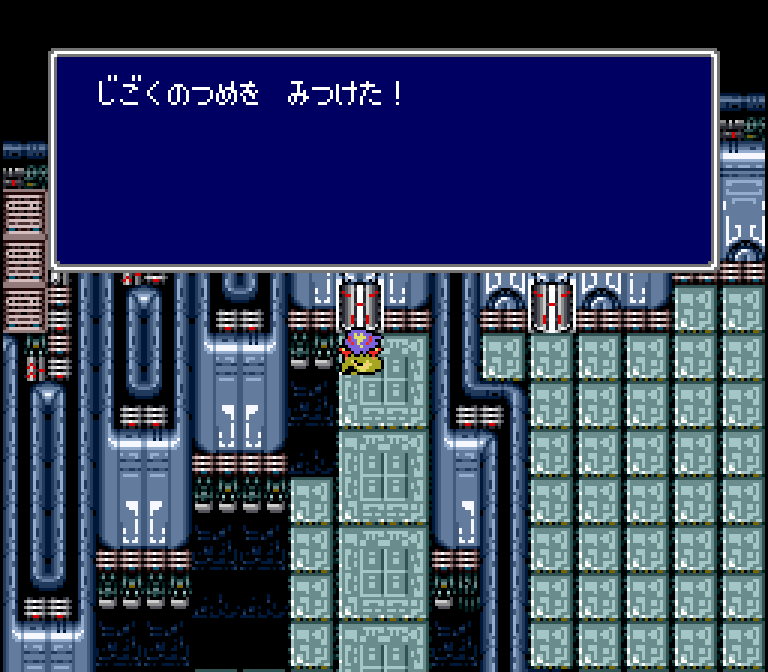 | 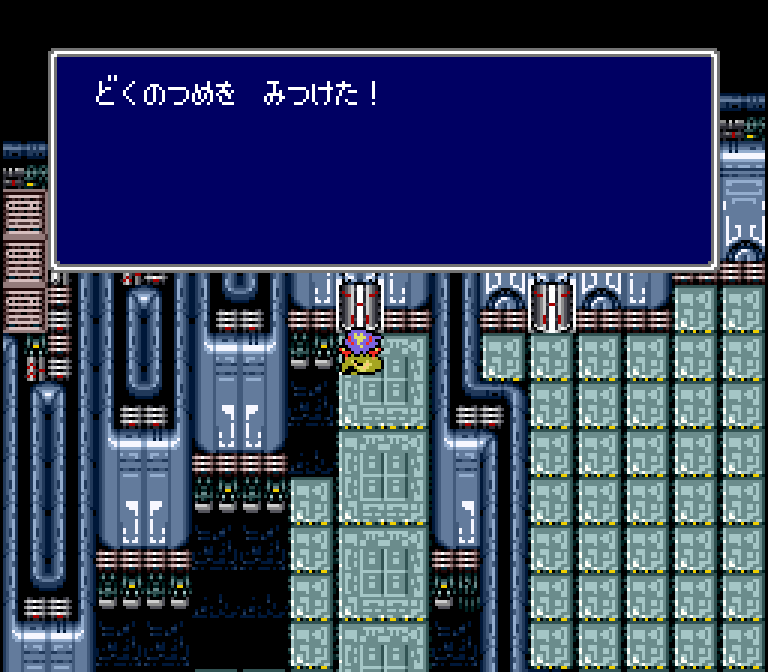 | 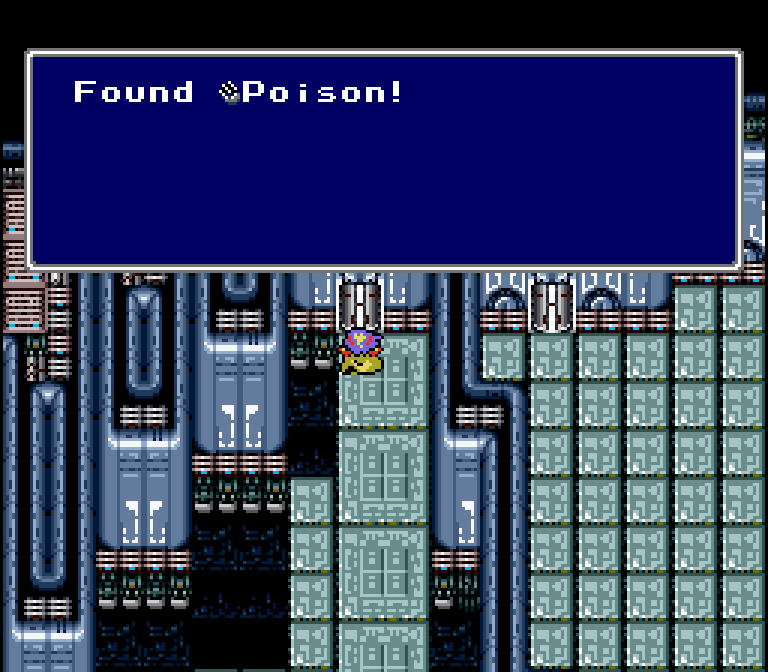 |
| Final Fantasy IV (Super Famicom) | Final Fantasy IV Easy Type (Super Famicom) | Final Fantasy II (Super NES) |
I was curious to see if this bug is present in the Japanese versions of the game too, so I checked – it’s indeed in all three versions of the game.


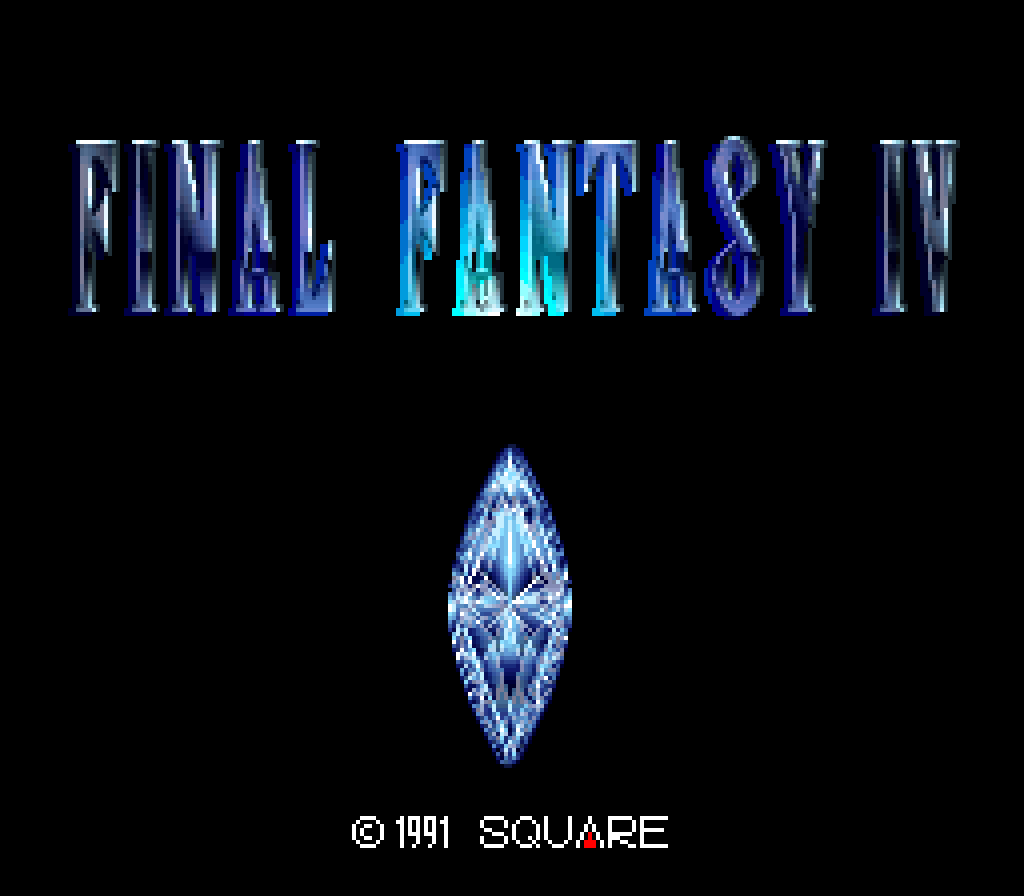
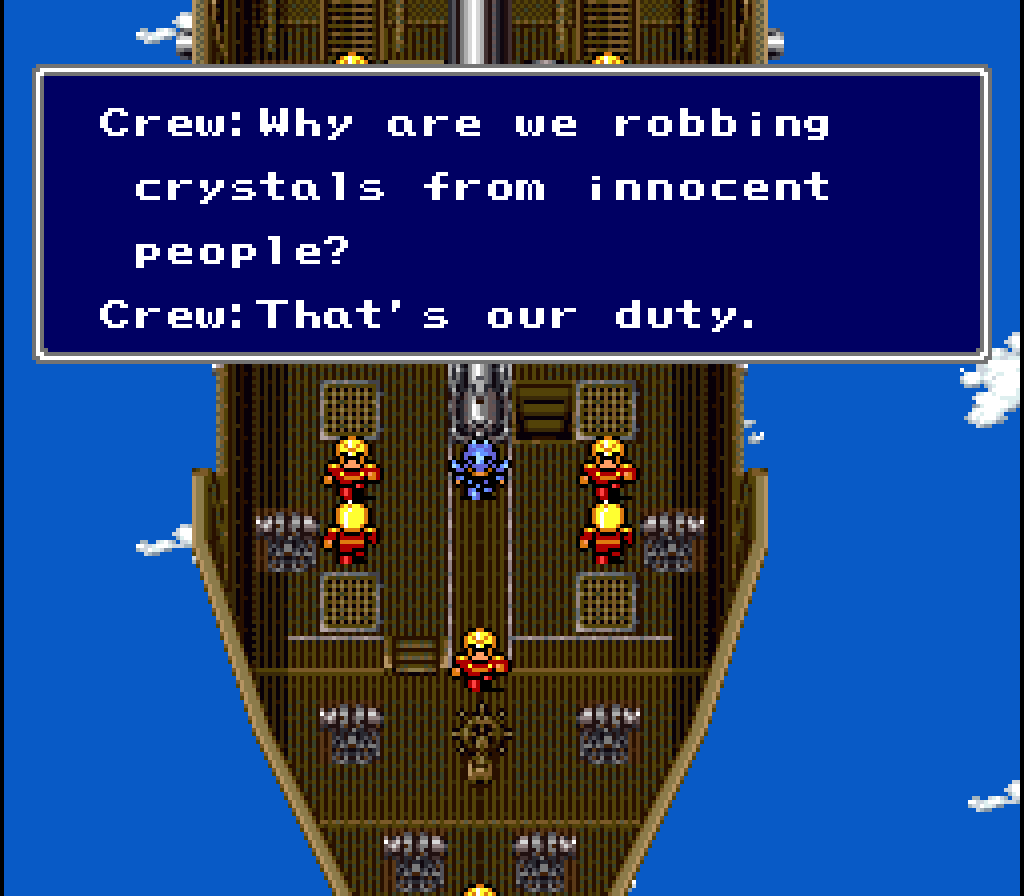
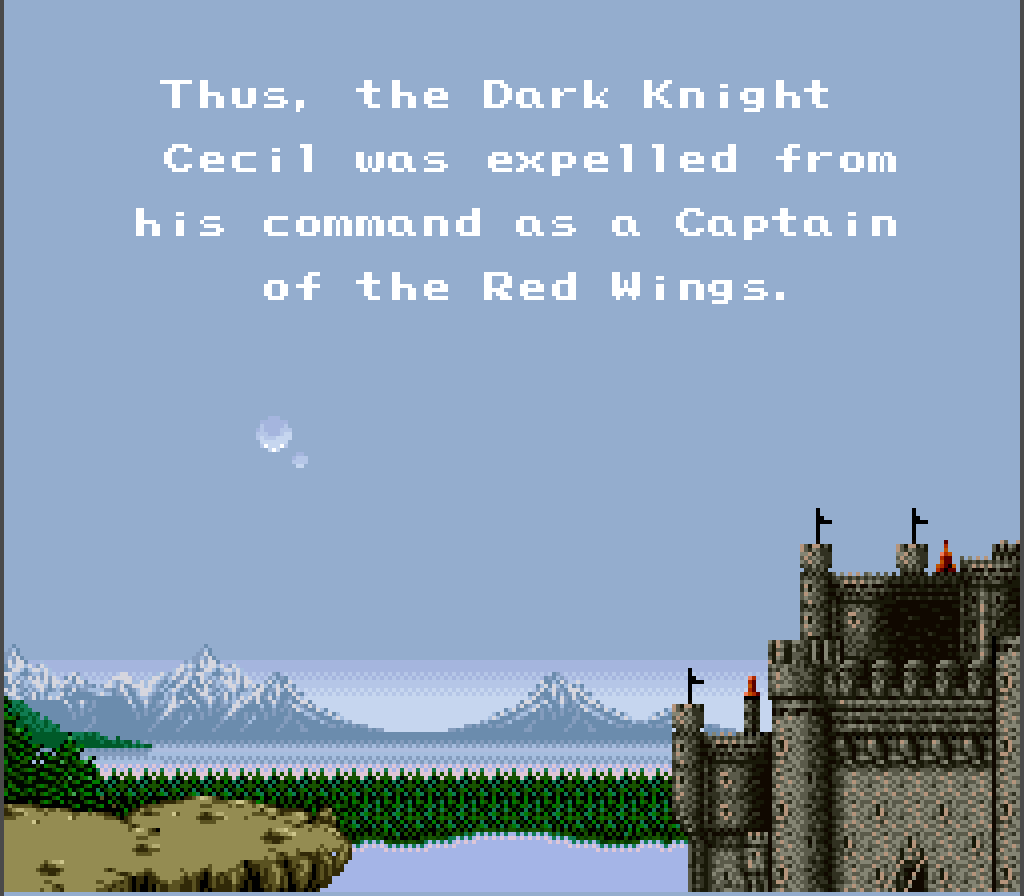
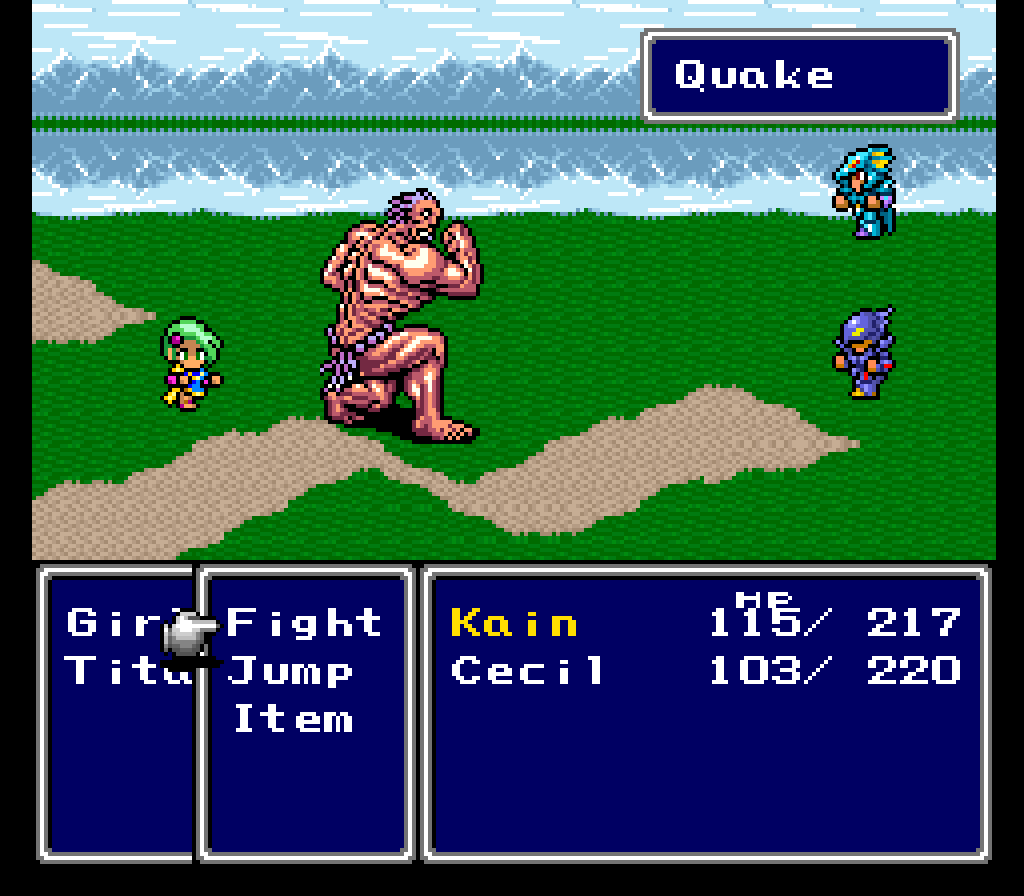
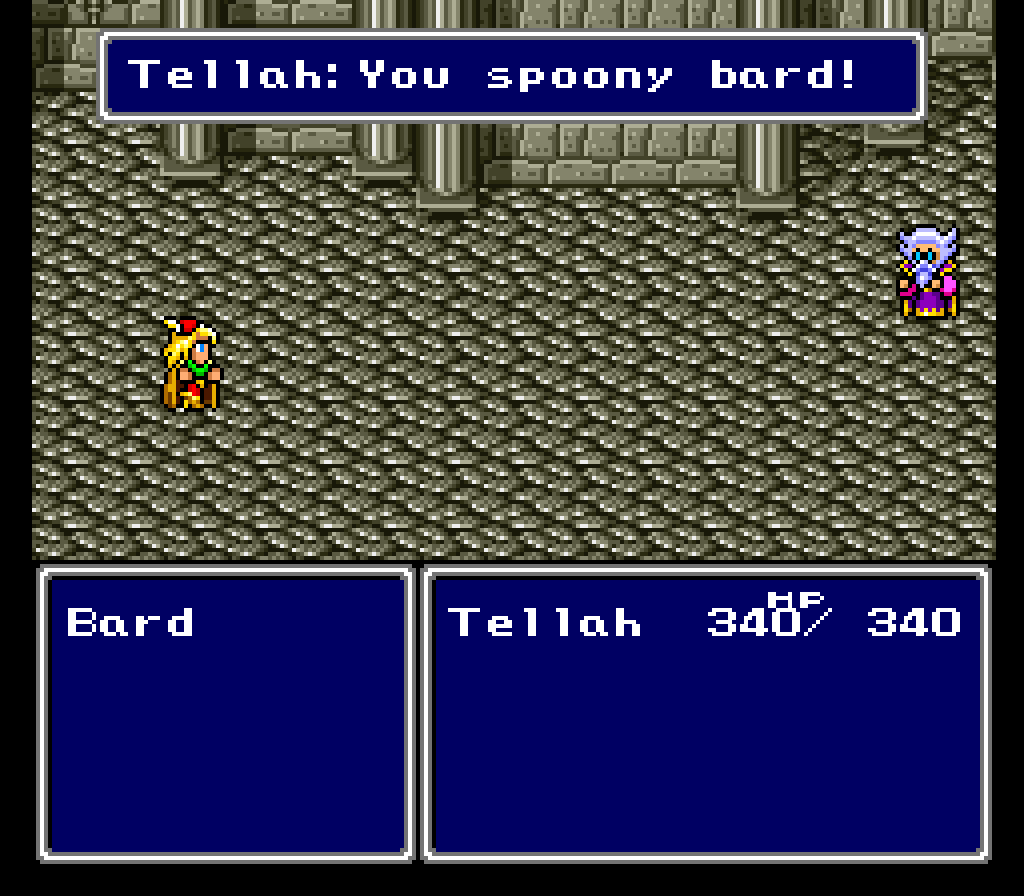
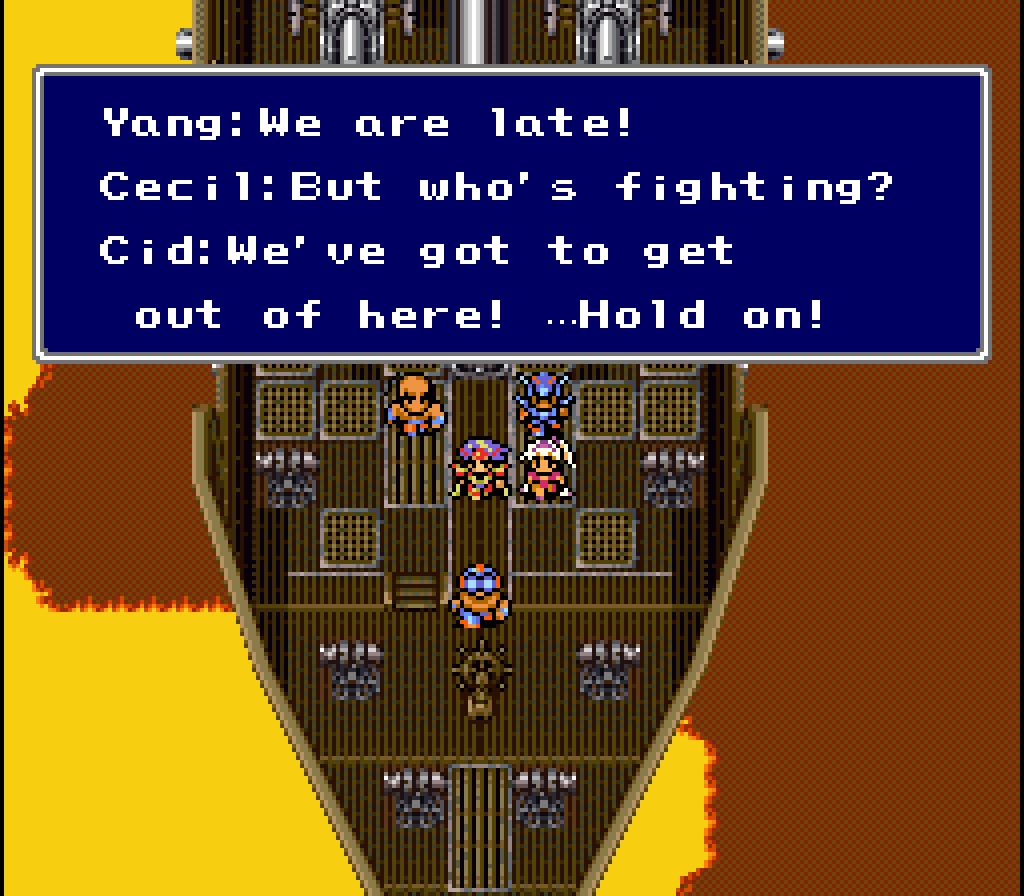
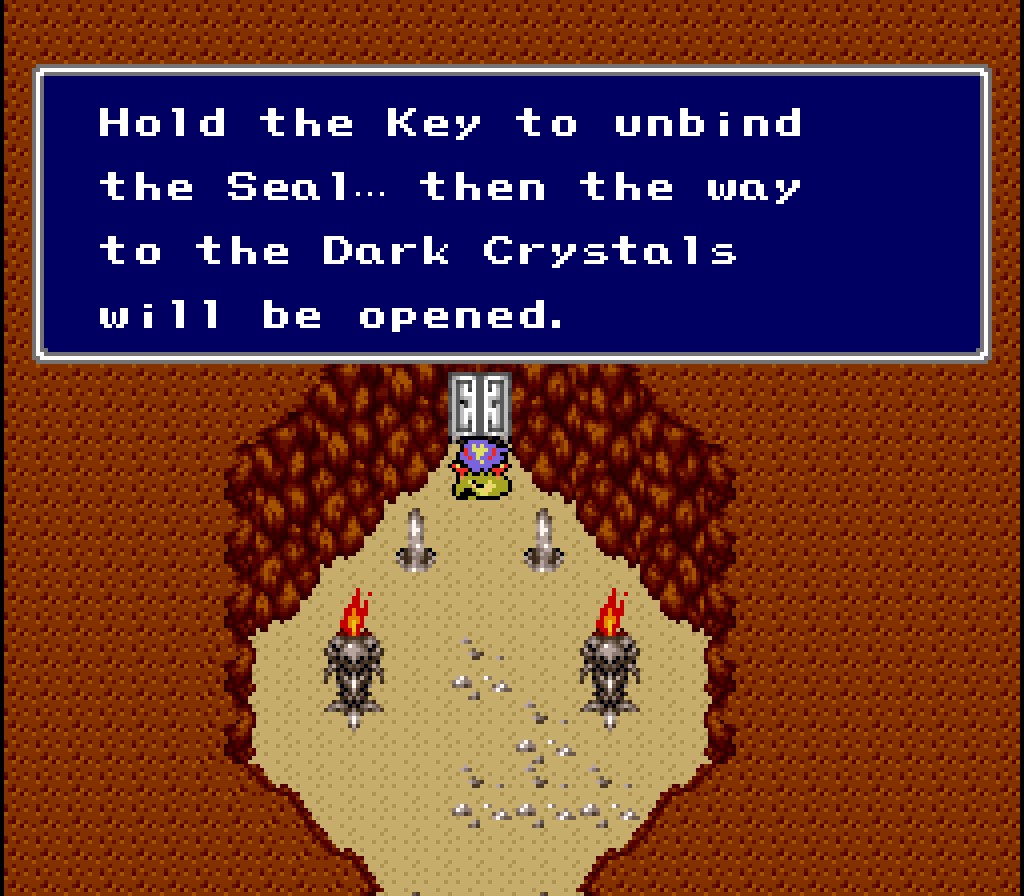
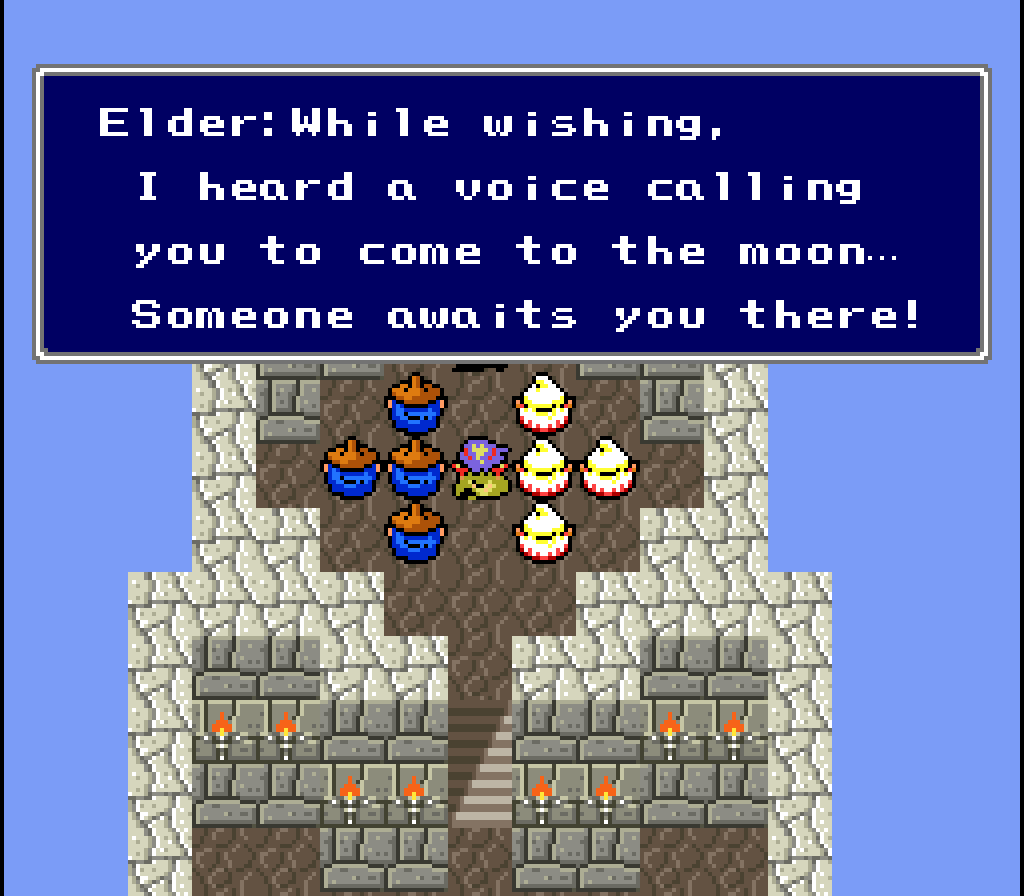
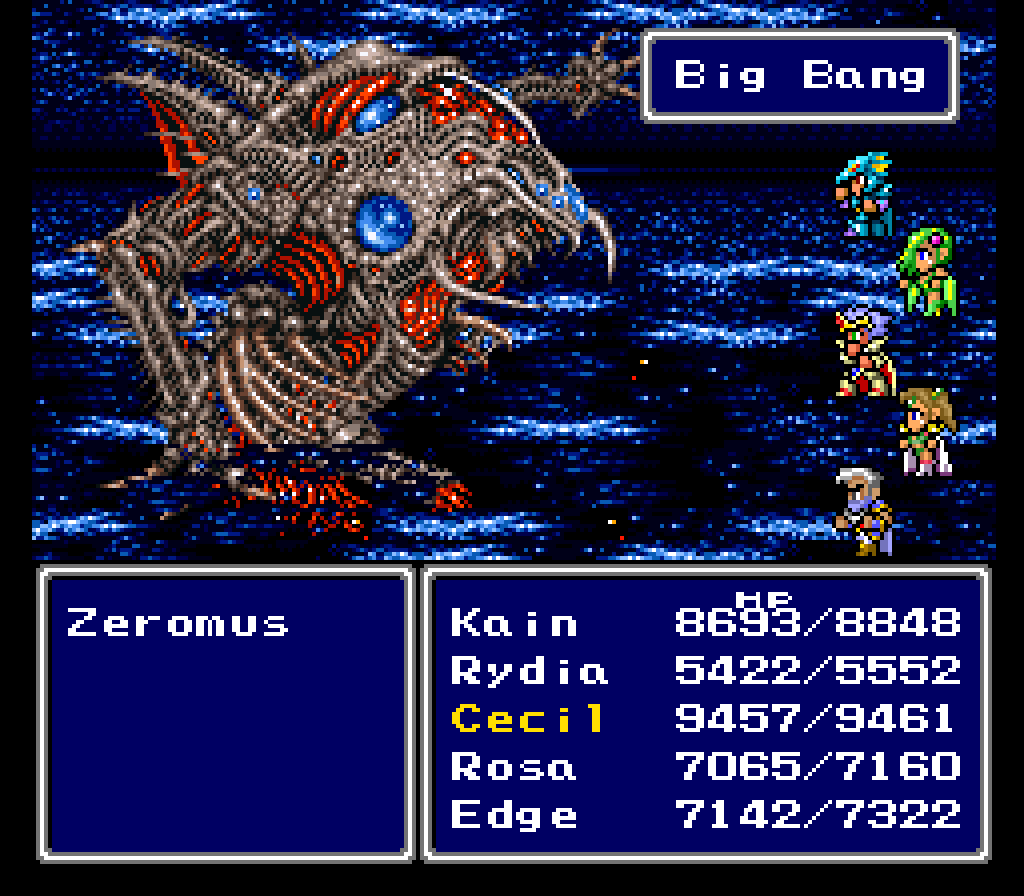
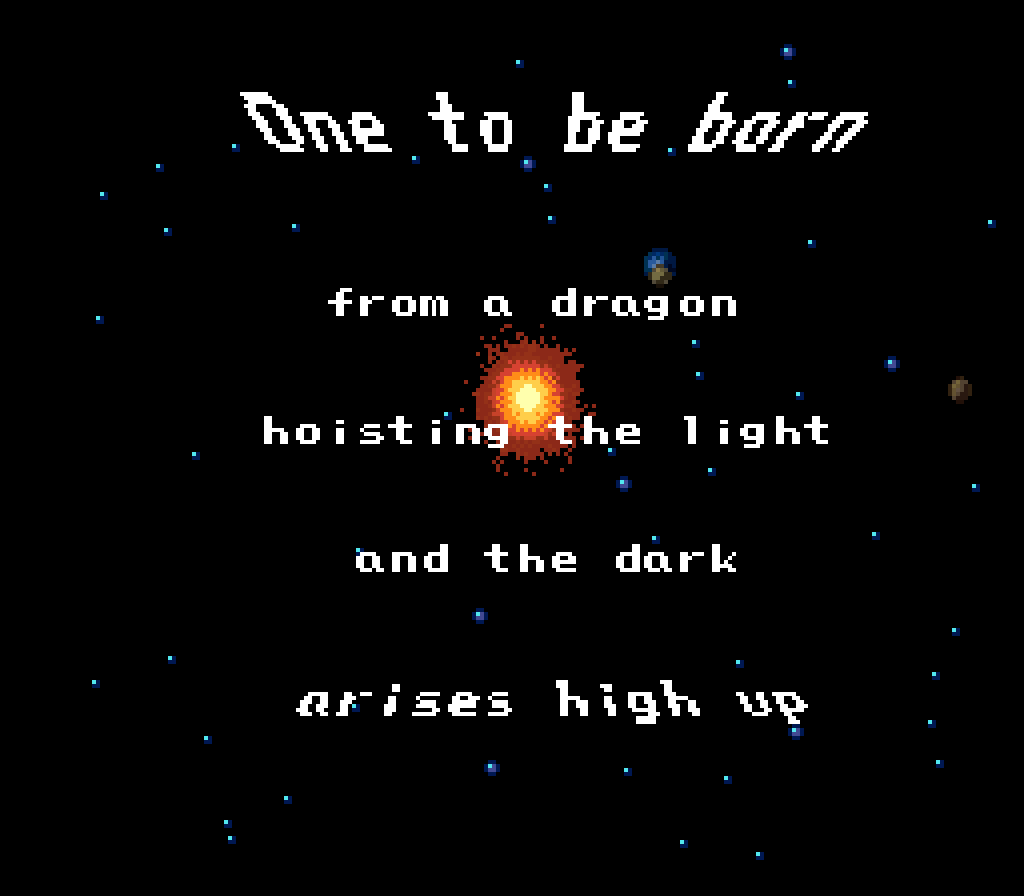
![press start to translate [Final Fantasy IV] press start to translate [Final Fantasy IV]](https://legendsoflocalization.com/wp-content/uploads/2019/08/bbenma.png)
It’s been a while…
Even as a kid the scene with Edge’s parents fell a little flat to me, I mean even more so than a lot of the game. It felt like nothing would have been lost if I were to just face Rubicante. I hated waiting out the battle with the parents in subsequent playthroughs. That said, the DS remake of this scene really hits the spot and is my personal favorite cutscene of the game. It’s amazing how much a clean presentation can do.
Typo: “details were lost ind doing so”
Thanks, I fixed the typo, if you see anything else lemme know.
Incidentally, I never thought about it before, but did these horrific transformation experiments ever lead to anything else later in the game/in the sequel? It feels like it could’ve been used as a strong background thread but I don’t recall if it ever gets brought up again.
In After Years, if you have Golbez in the party, he will lament Lugae’s waste of talent after beating him again. That’s the closest I know of.
There’s Baigan in Baron Castle but that takes place well before this point in the game and Baigan only talks about Golbez giving him a gift. The doctor’s never mentioned.
Whoa, I hadn’t put that together with Lugae at all that’s really interesting. I bet he *was* responsible for Baigan’s monster form in some way. I should check those Japanese data books.
Not that I know of, and the worst part is because of the ambiguity of the SNES translation, as a kid I tied two plot threads together where there were none.
In the SNES release, the Eidolons are just called Summoned Monsters, and how some of the Summoned Monsters like Asura, Leviathan, and Bahamut had human forms. I thought Lugae was doing the same thing with his experiments.
I also thought that it was the magic of the Land of the Summoned Monsters that allowed them to retain their sanity, and that they couldn’t leave not because otherwise, they would go crazy like regular monsters. Alternately, I mistakenly believed that if Edge’s parents had been taken to the Land of Summoned Monsters, they would gave been restored to sanity, even if they were unable to ever leave. I assumed the tragedy of the situation was that the party wasn’t able to do this.
Yes, I know none of this was in the game, but as a kid, my imagination went into overdrive on this plot point.
Whoa, that would’ve been really cool!
I think for a short while I had this assumption that being outside of the Land of Summoned Monsters would cause a summoned monster to lose control if they stayed outside too long. I forget why though, maybe I thought Rydia’s mom died because she stayed in that form/outside too long or something.
The scene fell flat for me as well as a kid, but for a different reason. I had no idea why, after being turned into monsters, the king and queen suddenly regained sanity and then…died…for no reason. It didn’t help matters that as a player you were then forced into a boss battle againt someone who wasn’t responsible. At that point I felt more bad for Rubicante than Edge.
Even the DS version, which clarified a lot, still retain the dodgy staging of the original version.
I mean, I always thought that the king’s line about having to die “before we lose our mind [sic]” made it clear that they were moments away from reverting to mindless killing machines. They killed themselves because otherwise they would’ve reverted to trying to kill Edge (and the others) and either have succeeded or forced Edge to kill them in self-defense. So to spare him that particular bit of guilt, they off themselves.
It’s a pretty small piece of dialogue for a major beat in a character’s story, but it’s quite as badly garbled as it could be. (For what it’s worth, the DS line is negligibly clearer here: “before the madness takes us again.”)
I admit as an adult I get it. It’s just that to me as a kid, when all I had was a battle scene and some very short text, it was just confusing. It’s a little like in the Simpsons when Poochie went back to his home planet…except less direct.
Plus it didn’t help that the SNES version called both Lugae’s experiments and Eidolons “monsters” and that you could explicitly summon certain regular monsters you fought. That “mind” line probably added to my foolish “monsters lose sanity if outside the Land of Summoned Monsters” theory, but I didn’t know it at the time.
Also, the King’s “We must not live long” line made me briefly consider that maybe these two were a failed experiment and that they were breaking down due to the monsterification process itself, but I tossed that one aside.
Even when the meaning was made more clear in the DS version, I guess at the end of the day, this scene bothered me because while it’s *trying* to portray a tear-jerking noble sacrifice based on what you describe, it really boils down to “we can’t live because we’re not human.”
I guess it’s strange what things a young mind can and can’t parse. I had my own instances of coming up with weird headcanons to try to rationalize a translation that made no sense*. But for whatever reason, my young mind was able to somehow (probably with a fair bit of luck) pull the intended interpretation out of this scene.
*(For just one example: the line way back about a girl from Baron falling down, combined with the animation for the Titan’s quake attack, made me think that Kaipo and Damcyan were in some kind of subterranean world (that somehow magically had its own sky?). I think looping back around to Baron (or at least Mysidia) must’ve corrected my thinking, but I don’t have a distinct memory of figuring out the truth.)
I think it would be interesting if someone made an actual RPG based on all of the collective misunderstandings we had of Final Fantasy IV, like Valvalis turning into a Mr. Glitch-like tornado instead of speedily spinning around, fleshing out the Lugae subplot and tying it to the Eidolons and monsters, and all the goodies yet to come.
For instance, the idea of Kaipo and Damcyan being in a subterranean world isn’t that bonkers when there actually is a physical underworld. It would make sense to climb a mountain to get back to the “surface.”
Quick! Someone compile a list of all the misconceptions. ACHOO!
It’s worth noting that the people who send Edge off do so literally saying (in the original script):
わかさま ごぶうんを! (Wakasama go-buun o!), or in kanji 若様 御武運を!.
Whereof “wakasama” is literally “young master,” and the latter part “go-buun o” is “(We wish you) good fortune (in your) battles.” Where 武運 is literally “martial fortune/luck.” Whereas (御)幸運((ご)こううん, (go)kou’un)”fortune/luck” is the more general term of respectfully wishing someone good luck/fortune/success.
The 若様 thing has already been covered previously in this.
Edge saying okey dokey, haha. That was definitely amusing at the time. And to think this was before it would become one of Mario’s many voiced little catchphrases. Imagine Edge dressed like Mario and you get:
“Itsa me, Edgio!”
Good one, I laughed at the idea of Edge doing that. Someone make fan art of that. XD
I remember the DS version handled the scene with Rubicante in a really cool way. If I remember correctly, it was something along the lines of “Even the icy winds of the 9th circle of Hell cannot penetrate my cloak of flame”.
Which is appropriate, considering where Rubicante’s name comes from.
Is this really a sign you’re continuing those comparison series that have been on a hiatus for a VERY long time for real?
I’m hoping to, but it’s hard to say anything for sure. At the very least, the updates will be much more focused on just the SNES/SFC versions from now on, like this update is.
I can empathize with Rydia. Edge is a bit of a bellend. Poor gal.
She always was my favourite FF girl.
Really happy to get a new episode of this! It’s cool to know the relationship between Edge and Rydia had more depth. Also, I’m pretty sure the original Dragon Ball Z dub always referred to death as “another dimension.”
John, you’re right about Dragon Ball Z but what made it apt was that the afterlife *was* another, physical plane of existence where tangible gods lived.
That brings me to another point of confusion I had about the Edge vs. King & Queen scene as a kid. Because of censorship in the Queen’s line, I thought she was threatening to take the characters to the world underground, as in the underworld. I didn’t realize it was a figure of speech. That Lugae was also fought in the Tower which was initially reached from the underworld also heightened this tie.
Consequently, I had a very different interpretation of the plot as a kid than I did as I got older.
Yeah, substituting “Dark World” for “Hell” really made things muddy. I don’t think I quite made that exact mistake, but I did get the impression they were talking about a place, not just euphemistically threatening to kill. (Thanks to the likes of A Link to the Past, I got the vague idea that it was something similar to, but not the same as, the Land of Summoned Monsters.)
Interesting to note that the DS translation strays a little farther afield from the original than is its wont. (Stylistic choices aside, it’s generally been very good at conveying the facts, at least.) In the DS version, Rubicante is impressed by Edge unlocking his powers via anger, but seems to consider this as something particular to Edge specifically, not humans generally.
“You are an interesting one indeed. Such powers, unleashed by anger alone!”
Thanks for coming back to this project!
Regarding the line, “But my Cloak of Flame cannot be penetrated even by cold!”
I think this line was retained in favor of the more flavorful “Oh-ho… So the thing known as “anger” can give humans strength,” because it has an actual gameplay impact on the upcoming battle where Rubicante will absorb Ice Elemental magic attacks while his cloak is closed. It advises caution against the obvious logic that Rubicante, as a fire elemental, will be weak to Ice.
“Edge: Why the moon!?”
“Cecil: For the power.”
“Goblin: What power?!”
“Jareth: The power of voodoo.”